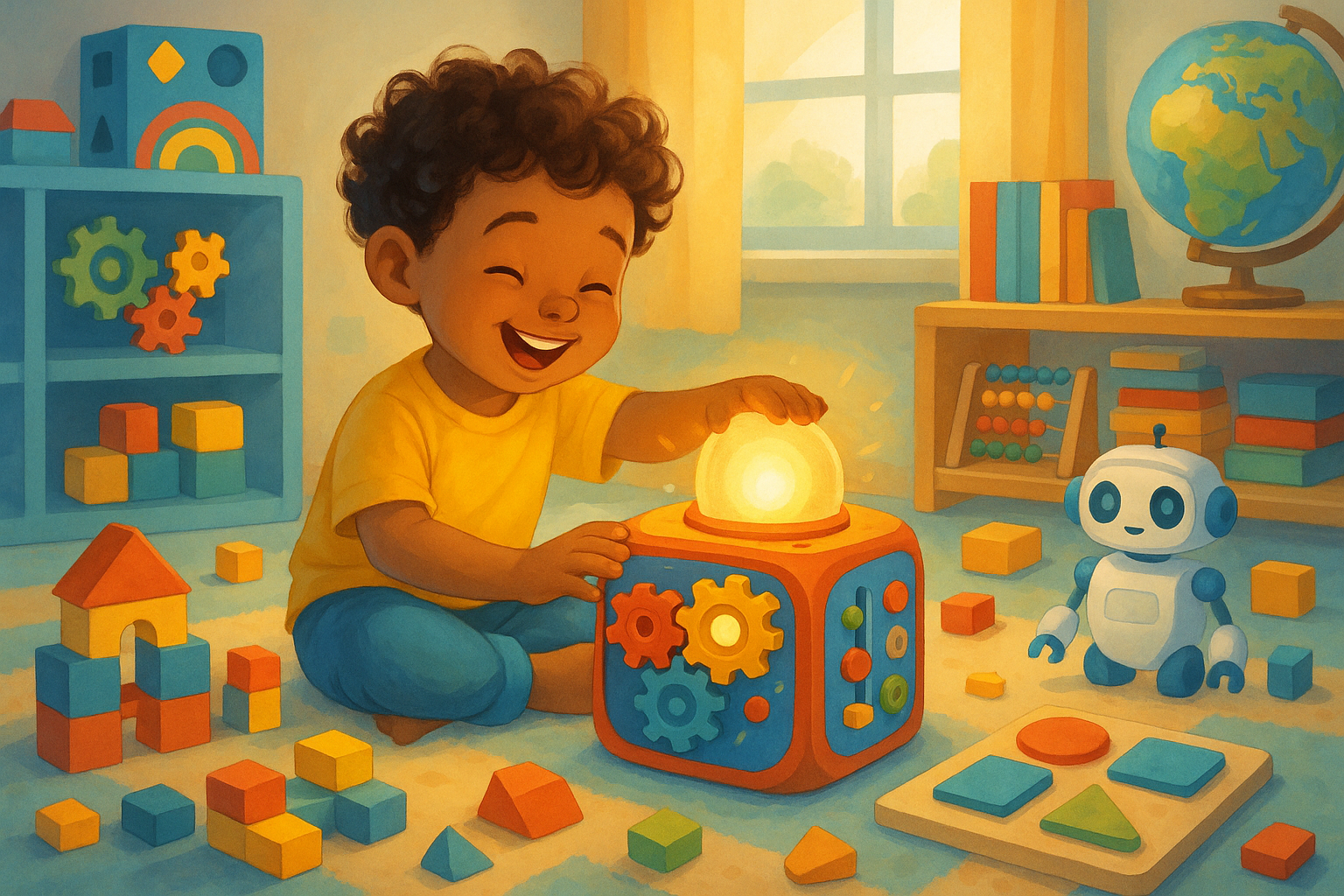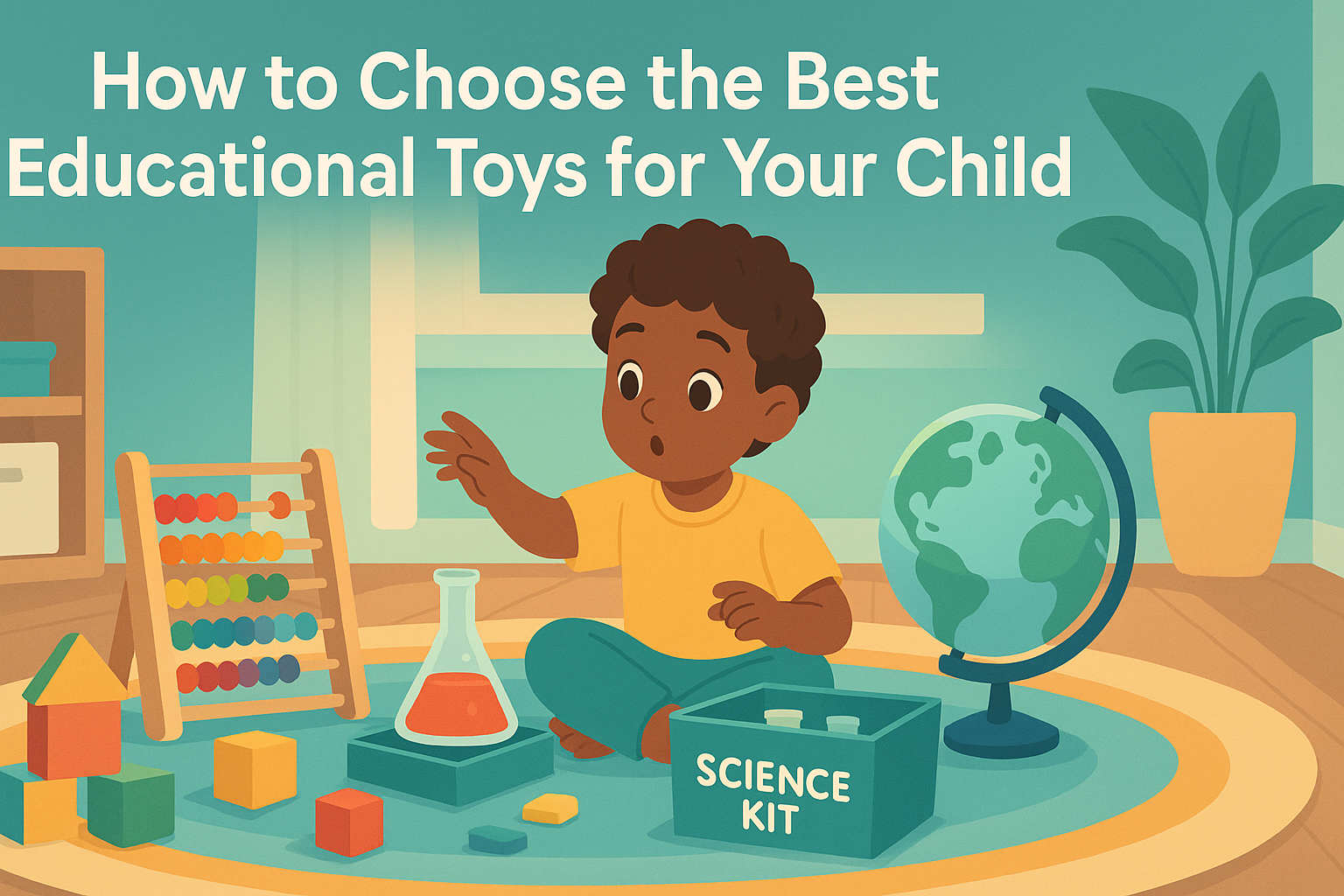How to Choose the Best Educational Toys for Your Child
In today’s world, where technology is advancing at lightning speed and educational standards are constantly evolving, finding the best educational toys for your child can feel like a daunting task. With countless options available, how do you choose the right toys that will not only entertain your child but also foster their development? 🤔
In this comprehensive guide, we’ll explore the essential factors to consider when selecting educational toys for your little ones, ensuring they receive both enjoyment and enrichment from their playtime. Let’s dive into the fascinating world of educational toys! 🚀

Table of Contents
- Understand Your Child’s Needs
- Age-Appropriate Toys
- Boosting Different Skills
- Safety First
- Reviews and Recommendations
- Budget Considerations
- Conclusion
- FAQs
Understand Your Child’s Needs
Every child is unique, with distinct interests and learning styles. Before you start shopping for toys, take a moment to observe your child and understand their preferences. Do they show a keen interest in building things, or do they enjoy role-playing? Are they more inclined towards artistic activities, or do they have a knack for solving puzzles? Recognizing these interests will help you choose toys that align with their passions and encourage learning. 🧠
Age-Appropriate Toys
Age-appropriate toys are crucial for maximizing the educational benefits of play. Toys that are too advanced may lead to frustration, while those too simple might not provide enough stimulation. Here’s a quick guide to selecting age-appropriate toys:
Infants (0-12 months): Look for toys that stimulate the senses, such as colorful mobiles, soft rattles, and textured toys.
Toddlers (1-3 years): Opt for toys that encourage exploration and problem-solving, like shape sorters, stacking blocks, and musical instruments.
Preschoolers (3-5 years): Choose toys that foster creativity and social skills, such as art supplies, dress-up costumes, and simple board games.
School-Age Children (6+ years): Focus on toys that enhance critical thinking and teamwork, including science kits, construction sets, and strategy games.
Boosting Different Skills
Educational toys are designed to enhance various skills and developmental areas. Depending on your child’s needs, you can choose toys that target specific abilities:
Cognitive Development: Puzzles, memory games, and building sets help improve problem-solving and critical thinking skills.
Physical Development: Toys like tricycles, balance bikes, and sports equipment promote physical coordination and strength.
Social and Emotional Development: Role-playing toys, dolls, and board games encourage sharing, empathy, and cooperation.
Language Development: Storybooks, alphabet games, and interactive reading toys support vocabulary expansion and literacy skills.
Safety First
No matter how educational a toy is, safety should always be a top priority. Ensure that the toys you choose are made from non-toxic materials and have no small parts that could pose a choking hazard. Check for age-appropriate labels and certifications from trusted safety organizations. 🛡️
Reviews and Recommendations
Before purchasing a toy, take some time to read reviews and seek recommendations from other parents. Online platforms and parenting groups are excellent resources for honest feedback about the durability, educational value, and overall enjoyment of toys.
Don’t hesitate to ask your child’s teacher or caregiver for suggestions, as they can provide insights based on your child’s interests and developmental stage.
Budget Considerations
While it’s tempting to splurge on the latest educational toys, it’s essential to consider your budget. Remember, a higher price doesn’t always guarantee better quality or educational value. Look for toys that offer longevity and can grow with your child, providing value over time.
Consider second-hand options or toy libraries as cost-effective alternatives that still enrich your child’s development. 💡
Conclusion
Choosing the best educational toys for your child involves understanding their unique needs, selecting age-appropriate options, and considering various developmental skills. By prioritizing safety, seeking recommendations, and sticking to your budget, you can ensure that your child’s playtime is both fun and beneficial. Happy toy hunting! 🎉
FAQs
Q: How do I know if a toy is educational?
A: An educational toy should encourage learning and development in one or more areas, such as cognitive, physical, social, or language skills. Look for toys that promote active engagement and problem-solving.
Q: Are expensive toys better for learning?
A: Not necessarily. While some high-quality toys may come with a higher price tag, there are plenty of affordable options that can be equally educational and engaging. Focus on the toy’s features and how they align with your child’s needs.
Q: Can electronic toys be educational?
A: Yes, electronic toys can be educational if they offer interactive learning experiences, such as language apps, coding games, or digital storytelling. However, balance screen time with hands-on play to ensure well-rounded development.
